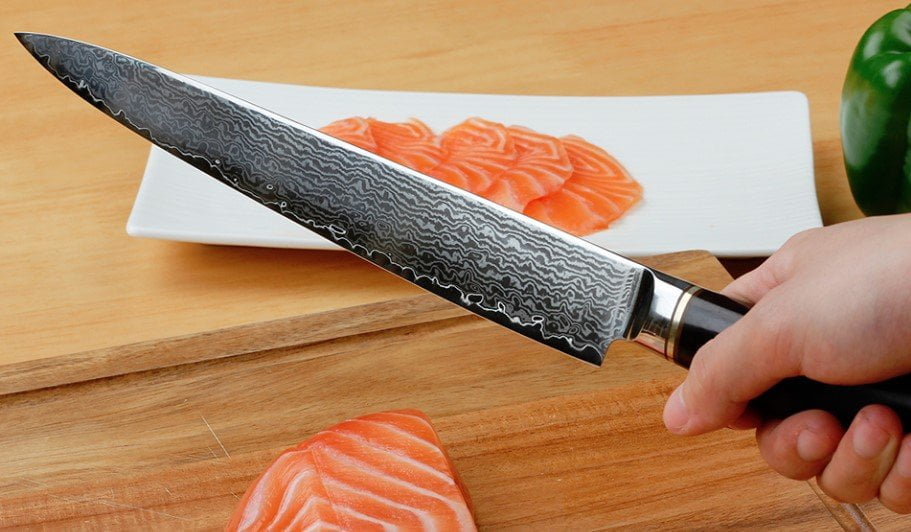Damascus knife maintenance is essential for preserving the unique beauty and functionality of these cherished culinary tools. As a kitchen professional, you depend on the precision and durability of your knives to master the art of food preparation. Understanding how to properly care for your Damascus knives not only prolongs their life but also enhances your culinary experience.
Your Damascus knife, known for its rich history and distinctive patterns, requires specific care to retain its aesthetic appeal and cutting efficiency. This guide will walk you through the essential steps in maintaining your prized possession.

Why Damascus Knives Require Special Care
Damascus steel is renowned for its beautiful wavy patterns, which are a result of layering different steels and etching the surface. This unique structure makes the blade incredibly strong and resilient. However, it also means that Damascus knives require special attention to avoid damage and corrosion.
The process of maintaining these knives is both an art and a science. You can delve deeper into the science behind Damascus steel to understand its complexities.
Steps to Proper Damascus Knife Maintenance
1. Regular Cleaning
After each use, wash your Damascus knife in warm, soapy water. Ensure that you dry it immediately with a soft cloth to prevent rust. Avoid leaving it submerged in water or putting it in the dishwasher, as these actions can damage the blades finish and edge.
For more insights on caring for different kinds of knives, the article on Old Timer knives offers useful tips and comparisons.
2. Oiling
Apply a thin layer of food-grade mineral oil on the blade after cleaning. Oiling is crucial to preventing moisture from corroding the intricate steel layers. This simple step keeps the blade looking pristine and operating smoothly.
3. Sharpening
Regularly sharpen your knife using a whetstone or professional sharpening service to maintain a razor-sharp edge. The sharpening process is vital in preventing dullness, which can increase the risk of accidents. For detailed sharpening techniques, you might find this guide on sharpening Damascus knives helpful.
Common Mistakes to Avoid
Understanding what not to do is as critical as knowing what to do. Avoid using your Damascus knife on materials that are harder than the blade. Also, never store the knife without cleaning and drying it first, as this could lead to rust forming on the blade.
Investing in Quality Damascus Knives
Your knife is a reflection of your professional standard. Investing in high-quality Damascus knives ensures longevity and superior performance. If youre new to Damascus knives, consider exploring insights about Damascus knives for professionals, which outlines essential features to consider.
Conclusion: Enhancing Your Culinary Craft
Mastering the care of your Damascus knife elevates your culinary capabilities. Each properly maintained knife becomes a reliable partner in the kitchen, making every cut precise and elegant. By adopting these maintenance habits, you'll ensure your knife not only lasts a lifetime but also maintains its beautiful appeal.
For further reading on Damascus steel and its applications, check the history and care of Damascus steel, which offers extensive insights into its heritage and preservation tips.

FAQ
How often should I oil my Damascus knife?
It's recommended to oil your Damascus knife after every cleaning session, especially if it's used regularly. If it's not in frequent use, oiling it once a month should suffice to keep the steel from tarnishing.
Can I use a honing steel on my Damascus knife?
Yes, a honing steel can be used to maintain the edge between sharpenings. However, ensure the honing steel is of high quality and suitable for Damascus steel to prevent damage.
What's the best way to store Damascus knives?
Store your Damascus knives in a wooden knife block or on a magnetized strip. Ensure the storage area is dry, as moisture can cause the blade to rust over time.
This article contains affiliate links. We may earn a commission at no extra cost to you.


























